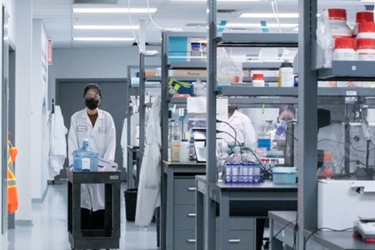Outsourcing RNA-LNP Production: A Key To Competitive Success

Lipid nanoparticles (LNPs) are used in nanomedicines, vaccines, nutritional supplements, and diagnostics by different routes of administration, including oral, topical, pulmonary, and IV/IM injection. The rapid development of mRNA vaccines by Moderna and BioNTech/Pfizer for COVID brought the limelight to RNA-LNP therapeutics, thereby increasing academic and industrial interest in RNA-LNP formulations. As a result, several large pharmaceutical companies and emerging biotechs are using lipid nanoparticles for nucleic acid drug development, which is expected to capture tremendous market growth in the future. In RNA-LNP therapeutics, the RNA is encapsulated in LNPs that protect it from degradation, allowing it to enter cells, then release the contents into the cytoplasm so ribosomes can use the RNA to synthesize the desired protein. However, a lack of expertise, low operational infrastructure, and the inability to produce consistent quality RNA-LNP drug products can lead to failed projects and financial losses.
Manufacturing the RNA-containing LNPs is a complex process and demands specialized expertise and experience. Developing a drug is time-consuming, complex, and multi-faceted, requiring enormous investment and extensive resources. In addition, it has many associated risks before achieving success. Explore some of the challenges of RNA-LNP drug manufacturing along with the advantages of outsourcing RNA-LNP formulations.
Get unlimited access to:
Enter your credentials below to log in. Not yet a member of Bioprocess Online? Subscribe today.
